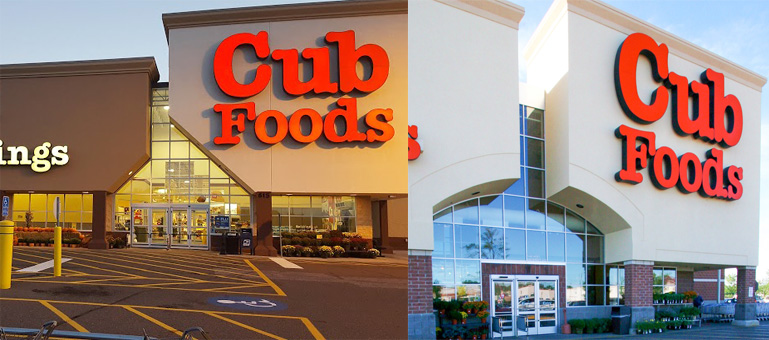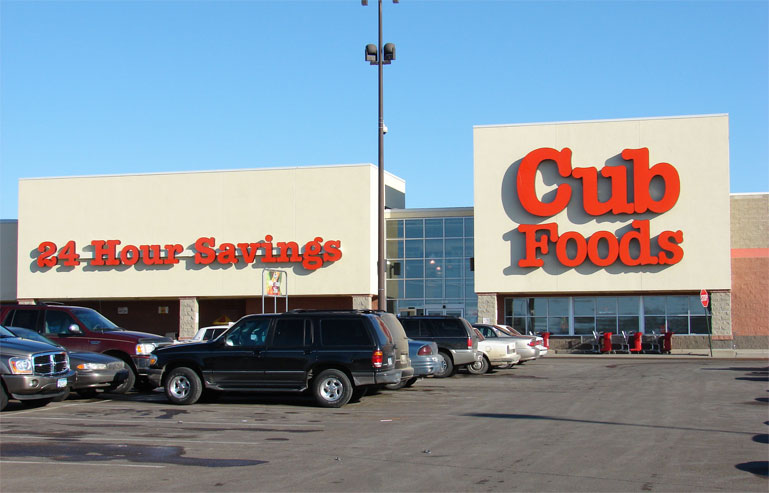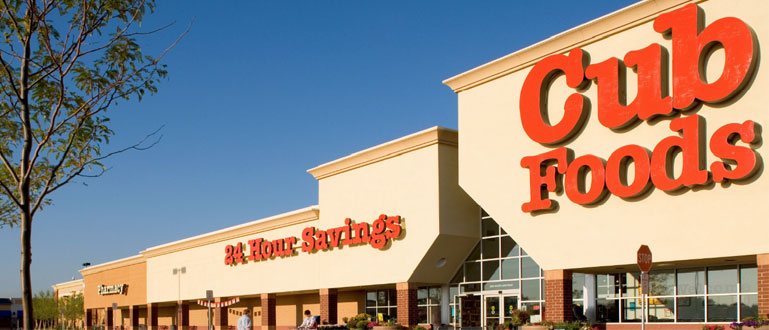Cub food close to me – Embark on a journey to discover the best cub food close to you, ensuring your furry friend’s nutritional needs are met. Delve into a world of flavors and textures, exploring the diverse options available for your precious cub.
From wet food to dry food and raw food, each type of cub food offers unique benefits. Dive into the nutritional value of each option, understanding how it contributes to your cub’s growth and well-being.
Types of Cub Food
Cubs have specific nutritional needs that must be met to ensure their healthy growth and development. Different types of food offer varying levels of nutrients and benefits, so it is important to choose the right type of food for your cub.
The main types of food for cubs are wet food, dry food, and raw food. Each type has its own advantages and disadvantages, so it is important to weigh the options carefully before making a decision.
Wet Food
- Nutritional Value:Wet food is typically higher in moisture content than dry food, which can be beneficial for cubs who are not yet able to drink enough water. It is also a good source of protein, fat, and carbohydrates.
- Benefits:Wet food is easy to digest and is a good choice for cubs who are still learning to eat solid food. It is also a good source of hydration, which is important for cubs who are prone to dehydration.
- Considerations:Wet food can be more expensive than dry food, and it is important to make sure that it is fresh and does not contain any harmful bacteria.
Dry Food
- Nutritional Value:Dry food is typically higher in carbohydrates and lower in moisture content than wet food. It is also a good source of protein and fat.
- Benefits:Dry food is more affordable than wet food, and it is easier to store and transport. It is also a good choice for cubs who are able to drink enough water.
- Considerations:Dry food can be more difficult to digest than wet food, and it is important to make sure that it is not too hard for your cub to chew.
Raw Food
- Nutritional Value:Raw food is the most natural diet for cubs, and it is a good source of protein, fat, carbohydrates, and vitamins and minerals.
- Benefits:Raw food can help to improve your cub’s overall health and well-being. It can also help to reduce the risk of allergies and other health problems.
- Considerations:Raw food can be more expensive than wet or dry food, and it is important to make sure that it is fresh and free of bacteria. It is also important to make sure that your cub is able to tolerate raw food before feeding it to them.
| Type of Food | Nutritional Value | Benefits | Considerations |
|---|---|---|---|
| Wet Food | High in moisture content, good source of protein, fat, and carbohydrates | Easy to digest, good source of hydration | More expensive, can contain harmful bacteria |
| Dry Food | Higher in carbohydrates, lower in moisture content, good source of protein and fat | Affordable, easy to store and transport | More difficult to digest, can be too hard to chew |
| Raw Food | Most natural diet, good source of protein, fat, carbohydrates, vitamins and minerals | Can improve overall health and well-being, reduce risk of allergies | More expensive, can contain bacteria, must be tolerated by cub |
Where to Find Cub Food

Finding cub food can be a challenge, especially if you’re looking for a specific type or brand. Here are some places where you can purchase cub food, both online and in-store:
Online Retailers
- Pros:Wide selection, convenient, often cheaper than in-store
- Cons:Shipping costs, may not be able to find specific brands
- Tips:Compare prices from multiple retailers, look for discounts and coupons, check shipping costs before purchasing
Pet Stores
- Pros:Wide selection, knowledgeable staff, often have live animals on display
- Cons:Can be more expensive than online retailers, may not have all brands
- Tips:Ask for recommendations from the staff, look for sales and discounts, join loyalty programs
Grocery Stores
- Pros:Convenient, often have a limited selection of cub food
- Cons:May not have all brands, often more expensive than online retailers or pet stores
- Tips:Check the pet food aisle, look for sales and discounts, use coupons
Veterinarians
- Pros:Can provide professional advice, often have a small selection of cub food
- Cons:Can be more expensive than other options, may not have all brands
- Tips:Ask your veterinarian for recommendations, look for sales and discounts
Tips for Finding the Best Deals on Cub Food
* Compare prices from multiple retailers.
- Look for discounts and coupons.
- Check shipping costs before purchasing.
- Join loyalty programs at pet stores and grocery stores.
- Ask for recommendations from your veterinarian or the staff at pet stores.
- Buy in bulk to save money.
- Consider making your own cub food.
How to Choose the Right Cub Food
When selecting a cub food, it’s crucial to consider several factors to ensure it meets the specific needs of your cub. These factors include the cub’s age, health status, and activity level.
Understanding Food Labels, Cub food close to me
Reading and comprehending food labels is essential for making informed choices. The ingredient list provides valuable information about the food’s composition. Look for high-quality ingredients such as real meat, fruits, and vegetables. Avoid foods containing excessive amounts of fillers, artificial flavors, and preservatives.
Nutritional Requirements
Cubs at different stages of development have varying nutritional requirements. Younger cubs require higher levels of protein and fat to support their rapid growth and energy needs. As they mature, their nutritional needs shift towards maintaining a healthy weight and supporting their adult activities.
Health Considerations
If your cub has any specific health conditions, it’s important to consult with your veterinarian to determine the most appropriate diet. Some foods may contain ingredients that can aggravate certain health issues, such as allergies or digestive problems.
Activity Level
The activity level of your cub should also be taken into account when choosing a food. More active cubs require a diet that provides adequate energy and calories to sustain their higher activity levels.
Comparison of Cub Food Brands
The following table compares several popular brands of cub food, highlighting their key features and benefits:| Brand | Key Features | Benefits ||—|—|—|| Blue Buffalo Wilderness | Grain-free, high protein | Supports healthy digestion and muscle development || Purina Pro Plan | Real meat as the first ingredient | Provides essential nutrients for growth and vitality || Royal Canin Maxi Puppy | Tailored for large breed puppies | Promotes optimal bone and joint development || Hill’s Science Diet Puppy | Clinically proven nutrition | Supports overall health and well-being || Eukanuba Puppy | High-quality protein and DHA | Enhances brain and vision development |Remember, this is just a general overview, and it’s always best to consult with your veterinarian to determine the most suitable cub food for your specific pet.
Finding cub food close to me can be a hassle, but thankfully, the houston food bank has got you covered. With their extensive network of pantries and distribution centers, you’re sure to find affordable and nutritious food options within your reach.
So, whether you’re looking for canned goods, fresh produce, or anything in between, the houston food bank is your go-to source for cub food close to me.
Feeding a Cub: Cub Food Close To Me

Feeding a cub is a delicate and crucial task. Cubs require a specific diet and feeding schedule to ensure their proper growth and development. It’s essential to understand the right way to feed a cub, including how often, how much, and the importance of providing fresh water at all times.
Feeding Frequency and Amount
The feeding frequency and amount vary depending on the cub’s age, size, and species. Generally, cubs need to be fed every 2-4 hours during the first few weeks of life. As they grow older, the feeding interval can be gradually increased.
The amount of food should be carefully measured and adjusted based on the cub’s appetite and growth rate. Overfeeding can lead to obesity and other health problems, while underfeeding can stunt growth and development.
Importance of Fresh Water
Fresh water is essential for a cub’s hydration and overall health. It helps regulate body temperature, aids in digestion, and prevents dehydration. Cubs should have access to fresh water at all times, especially during hot weather or when they are active.
Signs of Overfeeding and Underfeeding
Recognizing the signs of overfeeding and underfeeding is crucial for ensuring the cub’s well-being. Overfeeding can cause lethargy, vomiting, diarrhea, and difficulty breathing. Underfeeding, on the other hand, can lead to weight loss, weakness, and delayed growth. If you suspect overfeeding or underfeeding, consult a veterinarian immediately.
Final Conclusion

Choosing the right cub food is a crucial aspect of your pet’s journey. Consider their age, health, and activity level, and always prioritize their specific dietary needs. By following our expert tips, you’ll become a master in navigating the world of cub food, ensuring your little lion thrives.


